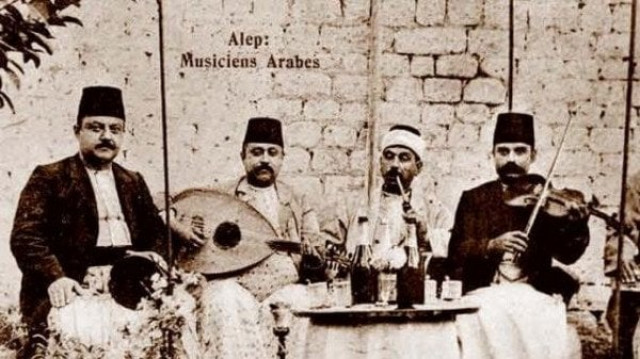London theatre hosts Ramazan night
Ramazan night was hosted by the Arts Canteen with help from the Arab British Centre

PHOTO COURTESY: ALARABIYA/RICHMIXTHEATRE
The Ramazan night was hosted by the Arts Canteen - with help from the Arab British Centre - which is responsible for promoting Middle-eastern emerging artists in the field of Music and visual art in the UK. Founder and creative director of the Arts Canteen Aser el-Saqqa said, “I have been working in the arts and cultural sector in the Arab world and Europe for 10 years and am a firm believer in the need for a more informed understanding of the cultural traditions of the Arab world in the UK. It is out of this conviction that I have curated this night with the support of the Arab British Centre. This wonderful Ramazan tradition lends itself beautifully to sharing with other communities.”
He goes onto explain that the insights for curating the event stem from his own background of being an Arab: “I grew up with Ramazan’s cultural traditions which are still alive in various countries in the Arab world. These include poetry, light displays, street performances, spoken word, theatre, food and music, which complement and enrich the religious and social aspects of this month.”
Read:Ramazan Bazaar: Police directed to facilitate citizens
Ramazan is the highlight of the year for Muslims and is celebrated with fervor around the world in Muslim countries. During the course of history various traditions and norms have evolved surrounding this month, which include colorful festivities and gatherings around mosques and communal sehris and iftaris.
As festivities begin to surround the Middle East, this year some of the diverse sound and poetry was transported to London projecting the spirit of Ramazan mimicking some of the sounds and ambience and poetry reminiscent of the past.
The theatre was lit up with candles and Arabic lanterns and the lineup included a diverse range of singers and Oud players from the Middle East. The lantern dates back 800 years and is a traditional symbol of Ramazan festivities in Cairo.
Among the many instruments that took centre stage the oud, the qanun, the violin and percussion were most prominent and the background aired documented footage from Arab capitals such as Beirut, Cairo, Rabat and Jerusalem.
The event is being perceived as a generator of “hope and solace” for British Arabs.
Writing for yourmiddleeast.com, Mohammad Sakhnini saif: “For many Damascenes who are going to the event, memories will be revived about Damascus’ old mosques, walls, souks and historic cafes and palaces, the spaces of history which once showed how the holy month of Ramazan could be a platform for artistic and musical revival and also a platform for social solidarity and charity crossing religious and class boundaries.”
Saqqa added that hosting this even in London was really important as it is great way to share the wonderful Ramazan tradition with everyone else in a relaxed and accessible manner.
This article originally appeared on Al Arabiya



















COMMENTS
Comments are moderated and generally will be posted if they are on-topic and not abusive.
For more information, please see our Comments FAQ